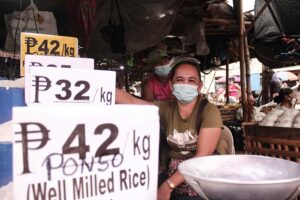 25 May 2021
25 May 2021
MANILA, Philippines – Typhoons, earthquakes, volcanic eruptions, droughts, and many more. Filipinos frequently experience different calamities and natural disasters each year. The COVID-19 pandemic has altered many lives from around the world and Filipinos are no exception. Millions of people’s daily routines came to a halt after the declaration of a lockdown or enhanced community quarantine (ECQ). As Filipinos endure one of the longest lockdowns in the world, the people are trying to cope with a crisis that seems to have no end in sight.
According to studies conducted in March of this year, more than 3 million Filipinos are out of work and many are at risk of falling into extreme poverty. These, along with deaths of loved ones, lockdown implementation, closure of establishments, offices, and schools, and the prohibition of social gatherings have taken a great toll on the majority of the nation. Consequently, mental health problems, such as anxiety and depression, are on the rise among young adults.
Filipinos are known to be extremely resilient, which is evident during difficult times. No matter how tough the situation, the people have seemed to develop their own coping mechanisms to survive and adapt to their current situation. Regardless of the complaints and the difficulties, people can slowly adjust to the new normal following strict protocols and restrictions. Since the quarantine, many have found new hobbies and discovered hidden talents to keep themselves busy and entertained.
Finding New Ways in the New Normal
Before the arrival of COVID-19, Agnes Garcia had a pretty comfortable life. She lived alone in an apartment but had a large group of friends and a family she could visit in a suburb near Manila. When the pandemic hit, Agnes was left in isolation with no one to interact with. She says she felt depressed for the first time in her life, but then she spent time collecting indoor plants to relieve her stress. She turned to home gardening and channeled her anxiety into taking care of her plants. A year after the pandemic started, she is now a proud plantita, a portmanteau of the words “plant” and tita (“aunt”).
A sudden spike in the demand for plants during the pandemic has spread across the Philippines. Many Filipinos sought comfort in tending their gardens and raising their plants as a way of coping with the lockdown. For landscape gardener Arnel Espinosa, business is busier than usual following months of lockdown. “My income has since tripled after the demand has grown exponentially. I now manage two branches in separate locations, which has kept my family afloat during this hard time,” Espinosa added.
The strictly implemented stay-at-home rules prohibited Gigi and Marilyn dela Cruz from going to their weekly meetup with their friends. The mother and daughter who lived in Quezon City were grieving months before the pandemic hit when Gigi’s husband passed away due to congestive heart failure. To ease the feeling of sadness, the mother-daughter duo would often speak to their friends and Gigi’s siblings through Zoom calls. “Family and friends kept us sane through this whole quarantine and prevented me from getting depressed. I am happy that I am able to call them and catch up with everybody,” Marilyn stated.
Family is the foundation of social life for most Filipinos. Family members usually turn to each other for emotional, physical, and financial support in times of need. While many Filipino families experienced serious changes as an effect of the COVID-19 pandemic, others used it as an opportunity to further strengthen family ties. For Gigi and Marilyn, social distancing and not being able to physically be with their friends have been hard, but staying connected through different platforms and social media made it all bearable.
The Bayanihan Spirit Lives On
The Filipino custom of bayanihan or spirit of solidarity has been evident during the Covid-19 pandemic, especially in the National Capital Region where most cases are recorded. A humble project known as the community pantry that started in the street of Maginhawa in Quezon City has now sprung up in different cities and regions of the country. The community pantry aims to provide free food and other necessities to those who are struggling financially during quarantine. It also gives people hope, particularly those who are most vulnerable.
For instance, an egg vendor from Valenzuela City donated five trays of eggs and distributed the rest of his stock for the day despite the difficulty of making ends meet. With tears in his eyes, he said, “People around me also helped my family when I lost the capital for my egg business because my wife became very ill. They supported us until we were able to get back on our feet. Donating eggs is just my way of giving back the blessings my family has received.”
To date, around 300 community pantries are found across the Philippines providing food to at least 5,000 people. Others who got inspired by the idea are starting their own pantries with non-food necessities, such as face masks, toys, medical supplies and services, pet food, and books, among other things.
Image from Joshua Solis, https://unsplash.com/@solis_joshuab
AUTHOR: Ethnic Groups Philippines

